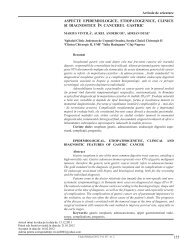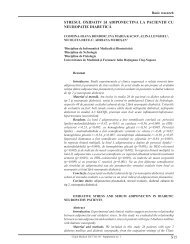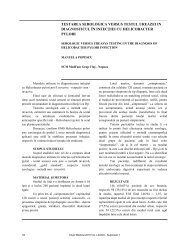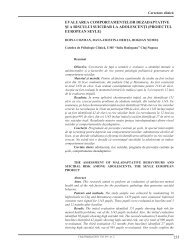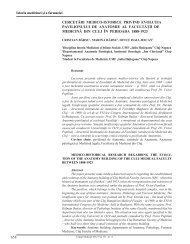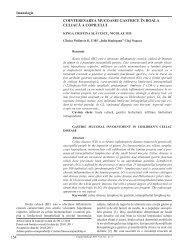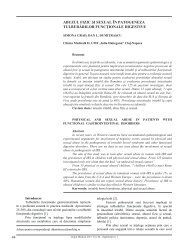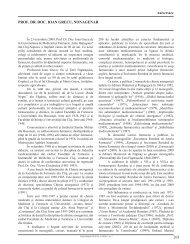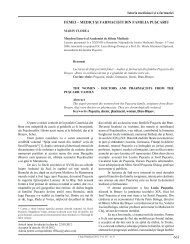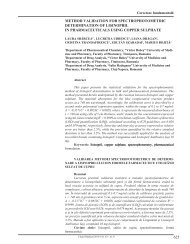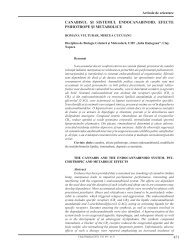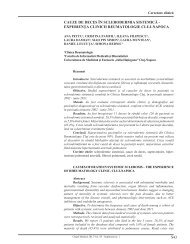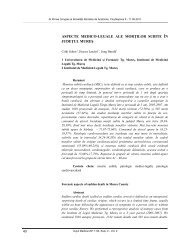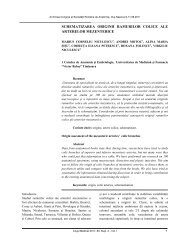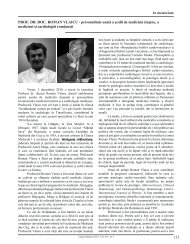Create successful ePaper yourself
Turn your PDF publications into a flip-book with our unique Google optimized e-Paper software.
<strong>Clujul</strong> <strong>Medical</strong> 2006 vol. LXXX - nr. 1<br />
Spectrum of <strong>Medical</strong> Care From Terminal Diagnosis to Death Arch Intern<br />
Med. 2001;161:868-874<br />
18. CHARMAZ K. The grounded theory method: an explication and<br />
interpretation.Waveland press 1983 p109-26<br />
19. STEVENS P.E. (1996) Focus groups: collecting aggregate-level data to understand<br />
community health phenomena. Public Health Nursing 13, 170-176.<br />
20. MAYS N, POPE C. Assessing quality in qualitative research. BMJ 2000;320:50-52<br />
The focus group as a qualitative research method. The<br />
appropriateness of using the method in exploring attitudes of<br />
the physician in communicating diagnoses and prognoses in<br />
oncology, hemato-oncology and palliative care<br />
DANIELA MOŞOIU, L PETROV<br />
Summary<br />
The focus group is a qualitative research method that can be successfully used<br />
in exploring experiences and attitudes concerning a defined topic, in our case the<br />
communication of diagnoses and prognoses in cancer and hematological malignancies.<br />
Methodology: 3 focus groups were run as part of the PhD research work. Participants<br />
were represented by doctors attending the second module of palliative care training of<br />
their diploma course. The same moderator ran the groups and the same interviewing<br />
guide was used. Data were audio/video recorded and afterwards transcribed verbatim.<br />
After coding, the content and the group interactions were analyzed. The results were<br />
validated through participants’ review. Results: a number of 31 doctors attended all<br />
three groups (12, 9, 10). The duration of the focus groups varied from 2 to 3 hours.<br />
There have been identified 6 domains: diagnoses disclosure, education, prognosis,<br />
death, team, decision making, each having a number of themes and sub-themes. For<br />
diagnose disclosure, the identified themes were: family has priority in receiving the<br />
diagnoses and decides further how the information will be used. There are tensions<br />
between the theoretical concept (the right of the patient to be informed, doctors’<br />
responsibility) and the attitude transposed into practice. The responsibility of diagnose<br />
disclosure is frequently delegated to the family doctor or to family members. The<br />
communication of the diagnoses is done after the doctor establishes a relation with the<br />
patient. Gradually, the model of diagnose disclosure has an impact on the further<br />
doctor-patient relation due to the fact that communicating a cancer diagnose is a process<br />
implying an intense emotional component.<br />
Key Words; focus group, diagnose disclosure, prognosis communication,<br />
cancer, palliative care<br />
78



